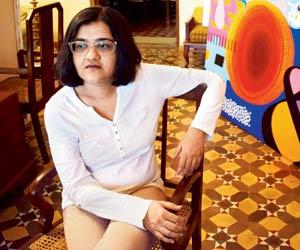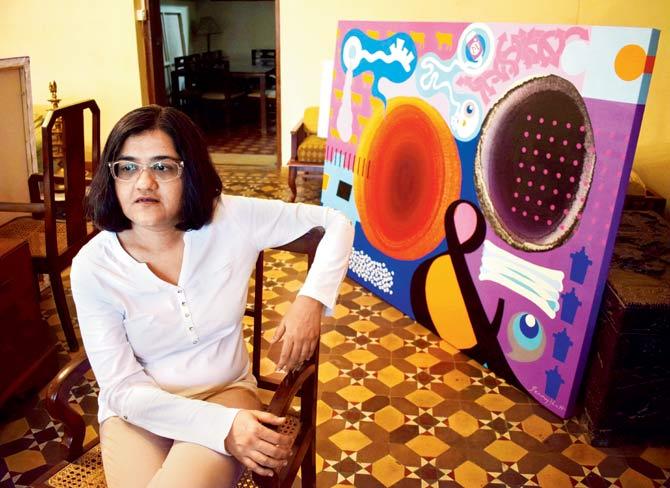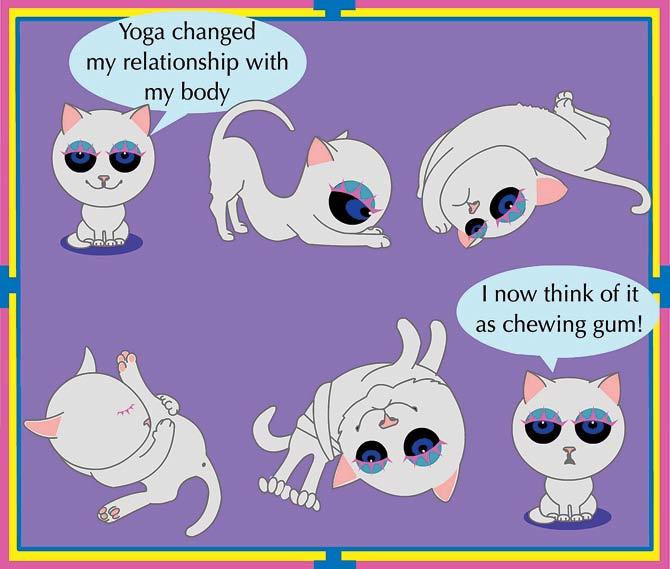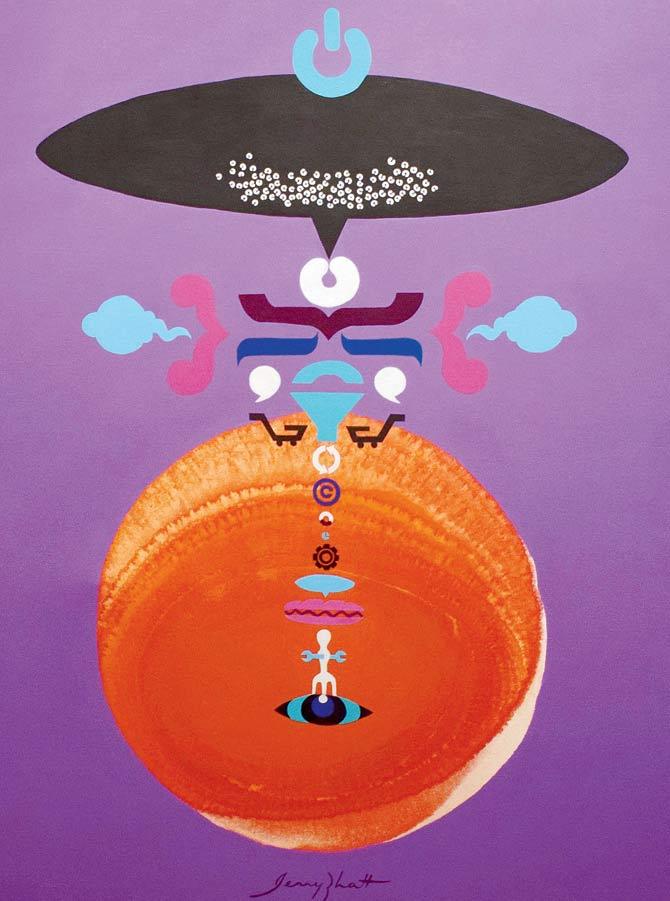Unconventional artist Jenny Bhatt chats about her latest pop yantras and giving life to deity characters in a new comic book

A few years ago, Jenny Bhatt performed a stand-up set on art snobbery at an art gala, where she drew uncomfortable laughs with her jokes on gallerists, artists and critics.
ADVERTISEMENT

Jenny Bhatt at her residence with MindMap 27, an artwork that's part of her new solo. The large-scale, multi-layered work is a comment on consumerism and the use of plastic integrated with a spiral mandala. Pics/Ashish Raje
Has the snobbery reduced? We ask Bhatt when we meet her at her Opera House residence. "They're not snobbish with me anymore," laughs the seasoned artist, recalling the early 2000s, when she'd shock the art fraternity by walking into exhibitions wearing slogan T-shirts lampooning the then art world. "It was a pre-cursor to performance art but the term wasn't familiar," recollects Bhatt, who began as an abstract artist in the mid-'90s. Over the last eight years, her style has evolved into pop surrealism, with influences of spirituality, pop culture and alternative healing practices. And while her stand-up stint may be brief and she may not walk around in slogan tees anymore, she continues to portray her straight-face humour and say-it-like-it-is style in her works, featured in over 15 solos and group shows in New York, Sydney and Berlin, and auctioned by Christie's.

Shots of the urban mind
Bhatt readies to showcase her latest solo, Swimming in the Subconscious. It's the 18th episode in the MokshaShots series she launched in 2009, with an idea of sharing glimpses of salvation, since full-fledged moksha may not be possible in this lifetime.
The latest works explore the state of an urban mind, subliminally fed by pop culture, digital media and advertising. They feature symbols of consumerism alongside mandala spirals and yantras.

A comic panel featuring MokshaCat, a recent character that has joined the MokshaPets gang
Bhatt, who got an insight into consumer culture during her time as a graphic designer in advertising, says, "Sustaining the series has been a challenge because it was launched when social media was at a nascent stage. It was tough to engage the viewers without a show. Today, I have direct access to them [via digital platforms] and 20-year-olds also enjoy my work as they come without prejudice."
Meet the pets
At the exhibition, Bhatt will also launch a comic book that compiles the most popular panels - each is a comment on social and political topics - from MokshaShots webcomic that she started last year. They star MokshaPets, a bunch of deities that Bhatt created as characters in 2009, including MokshaBuy, a consumer goddess; MokshaBum, an armchair philosopher; and the violent Mokshasura. The latest to join them is the reluctant seeker, MokshaCat.
"Internationally, comic books are taken seriously because they comment on contemporary culture. In India, there's a risk of being offensive. So, you have to say it in a way that's subtle and drives the point home. That is learnt with time and maturity," laughs Bhatt. A case in point: A panel on women's objectification invites the viewer to spot the difference between MokshaBuy and a vase.
As we're about to leave, Bhatt shares her plans to extend the comic book and shows us 3D-printed deities - a step ahead of her art toys and merchandise - that she hopes to share with audiences in good time.
 Subscribe today by clicking the link and stay updated with the latest news!" Click here!
Subscribe today by clicking the link and stay updated with the latest news!" Click here!






